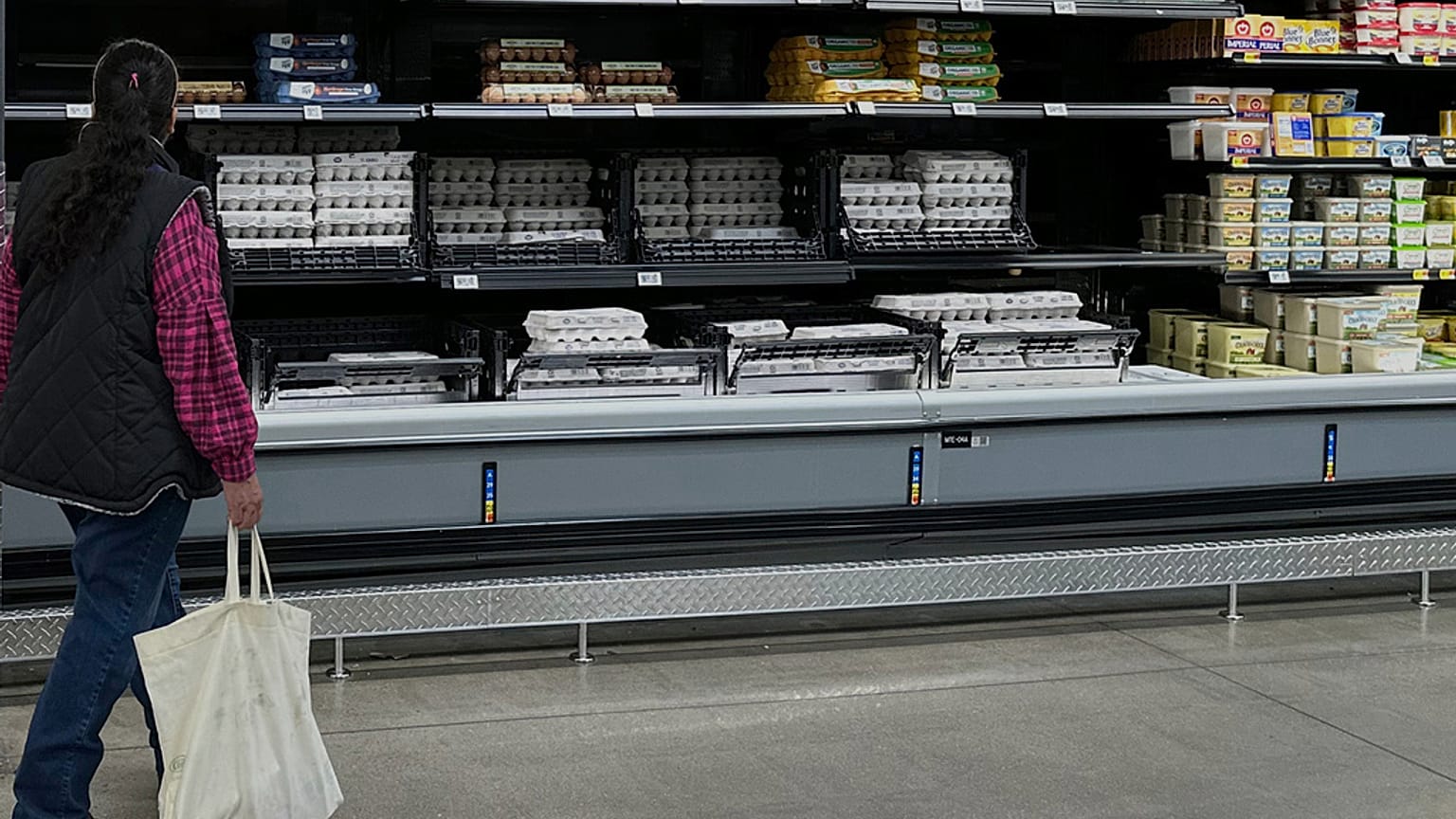Business
Portugal Faces Rising Grocery Prices as Inflation Hits Essentials

Consumers in Portugal are grappling with increased grocery prices, with the cost of a shopping basket now €17 higher compared to a year ago. According to data from DECO PROteste, the price of essential goods has risen significantly, reflecting broader inflation trends affecting various food items.
The latest figures indicate that the average cost of a basket containing 63 essential goods reached €241.17 in late August 2025. This marks a slight decrease of €0.13 from the previous week, but overall, it remains one of the highest prices recorded since DECO PROteste began monitoring these costs. A year earlier, on August 28, 2024, the same basket was priced at €16.54 less, highlighting a substantial increase of 7.36% year-on-year. The situation has deteriorated since January 2022, when consumers spent €53.47 less for the same products.
Eggs have experienced one of the steepest price hikes, with the cost for half a dozen now exceeding €2, specifically at €2.06. This represents a staggering increase of 41% in just one year, as they were priced at €1.47 on August 28, 2024. The price of eggs has surged 81% since DECO PROteste began its analysis in January 2022, when they cost only €1.14.
Key Drivers of Price Increases
Several factors contribute to the escalating prices of essential goods in Portugal. The ongoing conflict following the Russian invasion of Ukraine has disrupted the supply of cereals, which are crucial for the agri-food sector. This disruption has compounded challenges stemming from the COVID-19 pandemic and drought conditions, leading to increased production costs for fertilizers and energy.
In addition to these global issues, a significant factor affecting egg prices has been a severe bird flu crisis. This outbreak, primarily impacting the United States, has resulted in the culling of over 170 million hens since 2022, creating shortages that extend to Europe, including Portugal. The high demand coupled with limited supply has driven prices upward.
From January to August 2025, eggs saw the largest percentage increase, followed by curly lettuce at 38%, broccoli at 33%, and cooking beef at 28%. The latest weekly data from August 20 to August 27, 2025, reveals that fish fingers rose by 22%, frankfurter sausages by 13%, and onions by 10%.
Government Measures and Future Outlook
To alleviate the financial burden on consumers, the government of former Prime Minister António Costa signed an agreement in March 2023 with food retailers and the agri-food production sector. This agreement instituted a VAT exemption on over 40 essential food items, effective from April 18, 2023, to January 4, 2024. Following the expiration of this exemption, the price of the basket of 41 foods increased by €5.43 (3.82%), rising from €141.97 to €147.40 by August 27, 2025.
The most significant price increases since the end of the VAT exemption were observed in cooking beef (up 36%), eggs (up 35%), and sea bream (up 34%). These hikes reflect the ongoing instability in the global supply chain and the impact on local consumers.
The outlook for grocery prices in Portugal remains uncertain, as the interplay between international crises, local production challenges, and consumer demand continues to shape the market landscape. As inflation affects everyday essentials, the need for effective policy measures to stabilize prices and protect consumers becomes increasingly critical.
-

 Top Stories3 months ago
Top Stories3 months agoTributes Surge for 9-Year-Old Leon Briody After Cancer Battle
-

 Entertainment4 months ago
Entertainment4 months agoAimee Osbourne Joins Family for Emotional Tribute to Ozzy
-

 Politics4 months ago
Politics4 months agoDanny Healy-Rae Considers Complaint After Altercation with Garda
-

 Top Stories4 months ago
Top Stories4 months agoIreland Enjoys Summer Heat as Hurricane Erin Approaches Atlantic
-

 World5 months ago
World5 months agoHawaii Commemorates 80 Years Since Hiroshima Bombing with Ceremony
-

 Top Stories3 months ago
Top Stories3 months agoNewcastle West Woman Patricia Foley Found Safe After Urgent Search
-

 Top Stories5 months ago
Top Stories5 months agoFianna Fáil TDs Urgently Consider Maire Geoghegan-Quinn for Presidency
-

 World5 months ago
World5 months agoCouple Convicted of Murdering Two-Year-Old Grandson in Wales
-

 World5 months ago
World5 months agoGaza Aid Distribution Tragedy: 20 Killed Amid Ongoing Violence
-

 World5 months ago
World5 months agoAristocrat Constance Marten and Partner Convicted of Infant Murder
-

 Top Stories4 months ago
Top Stories4 months agoClimbing Errigal: A Must-Do Summer Adventure in Donegal
-

 Top Stories4 months ago
Top Stories4 months agoHike Donegal’s Errigal Mountain NOW for Unforgettable Summer Views









